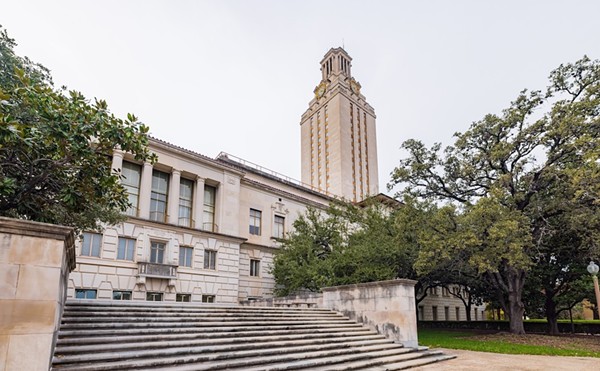By then, many had heard about 32-year-old Fidel Castro, who with 12 survivors of a small invasion force, was waging a guerrilla war in the Sierra Maestra. On New Year's Day 1959, abandoned by the United States, Dictator Fulgencio Batista fled. We welcomed Castro, now a folk hero, to the Overseas Press Club of New York, where we endured what soon became his trademark: a three-hour impromptu speech.
When I returned to in Cuba in June 1959 and again a year later, I watched the different reactions of the wealthy and the impoverished as the government nationalized big farms and foreign enterprises, drastically cut rents, and abolished racial apartheid. Those who had read the signs had salted away their wealth in Florida, and followed it to Miami. The United States, at first benignly indifferent to what it assumed would simply be a brief cleansing followed by a new round of corruption, bristled at the threat to its $2 billion investment. It rejected the proffered long-term bonds as inadequate, severed diplomatic relations, and imposed an embargo.
Yet there is a growing movement in the U.S. to end the 43-year-old embargo and normalize relations with Cuba. The Orlando Sentinel reported last week that supporters are as diverse as agribusiness giant Archer Daniels Midland, religious and humanitarian organizations, and even some conservative members of Congress, who see Cuba as another market for American business. Although the Bush administration is still taking a tough stance on Cuba and wants to retain the embargo, former President Jimmy Carter is visiting there this month to try to improve relations between the two countries, separated by just 90 miles of the Florida Straits.
Besides U.S. business interests and humanitarian concerns, support for the embargo is eroding because it's clear the blockade isn't working. When one considers the trading status the U.S. grants to other countries whose governments are undemocratic and human rights policies are reprehensible, embargo opponents realize it is hypocritical, outdated, and ineffective.
Initially, to survive the embargo, Castro turned to the Soviet Union, which responded generously, buying sugar and providing industrial equipment, technical aid, and liberal credit. Cuba became a pawn in the Cold War, leading to the threat of a nuclear holocaust in 1962 — the Missile Crisis. Afterward, we committed ourselves to a hysterical policy that we persist to brandish today: Use whatever means are necessary to force Cuba to recognize our dominance. In violation of international law, the U.S. recruited, trained, and equipped the army that ended ignominiously at the Bay of Pigs.
With Soviet aid, Cuba prospered. The Cuban government created an industrial infrastructure, with emphasis on building cane-cutting and other farm machinery. Universal education and health became priorities. Today, Cuba has 99 percent literacy and high percentages of doctors and other professionals. The health indices take Cuba out of the Third-World category. Infant mortality, for example, is seven per thousand live births, compared to 7.6 in the United States.
The collapse of the Soviet Union in 1989 was a devastating blow, as the market for Cuban sugar disappeared and business with the Soviet bloc — representing 85 percent of total trade — disappeared.
Cuba's survival required a considerable departure from socialist orthodoxy. State farms, covering 80 percent of all arable land, became cooperatives whose members were paid on the basis of productivity. Produce, service, and artisan markets were legalized, as was possession of U.S. dollars. The black market, a constant in Cuban life, grew.
The minimum wage of 125 pesos a month (about $5), together with free or almost free housing, enables everyone to survive just above starvation level. Professionals earning three or four times the minimum do only marginally better. To live comfortably, one needs dollars obtained from relatives abroad or through working in tourism. So professionals work as waiters and bartenders, or use their cars as taxis.
Tourism from Latin America, Canada, and Western Europe is up and accounts for the principal and rapidly increasing source of dollars.
Resistance is growing in the United States to the ban on travel, a ban many consider unconstitutional as an arbitrary restriction on citizen rights. Pressure is also coming from U.S. commercial interests and foreign companies still seething over the Helms-Burton Act, which allows the U.S. to file lawsuits against foreign corporations doing business in Cuba. Nonetheless, last December food conglomerates and farmers forced approval of a $30 million sale of food to Cuba.
Even our closest allies condemn the U.S. embargo. The vote last fall at the United Nations was 167 to 3 to overturn the blockade. Only Israel and the Marshall Islands voted with the United States. What sense does it make? It is a small island that would fit six times into Texas with room to spare. Cuba has no navy, but just a tiny army and air force without offensive capacity. Cuba is no greater threat to our survival than a Communist tyranny like China, to which the U.S. has granted diplomatic relations and awarded favored-nation status. But perhaps the U.S.' willingness to court China is based on the numbers: There are more than one billion Chinese available to eat McDonald's, drink Coca-Cola, and buy Monsanto's Roundup Ready. And now American business is hungry for the 11 million Cubans.


















